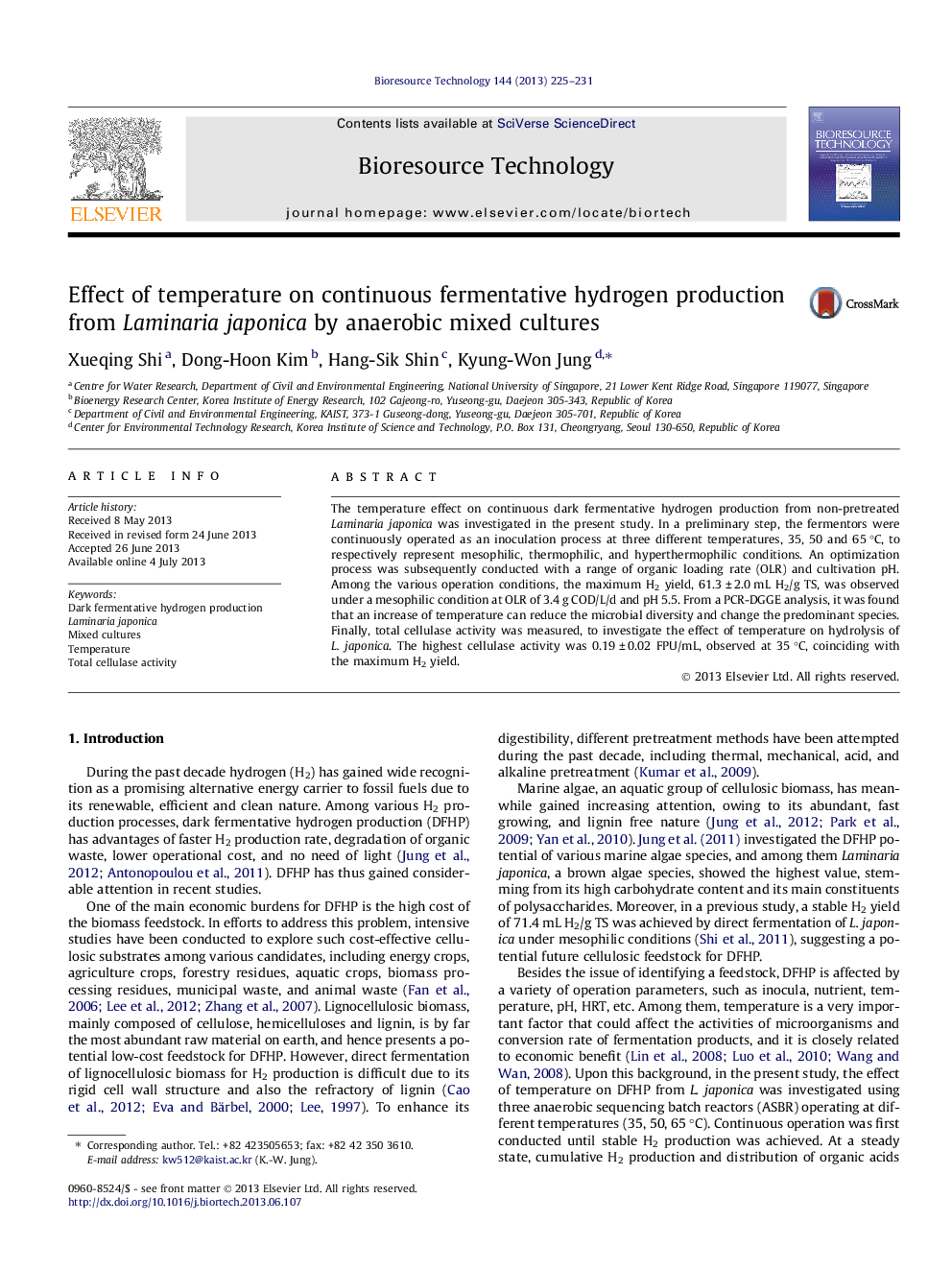| Article ID | Journal | Published Year | Pages | File Type |
|---|---|---|---|---|
| 7081482 | Bioresource Technology | 2013 | 7 Pages |
Abstract
The temperature effect on continuous dark fermentative hydrogen production from non-pretreated Laminaria japonica was investigated in the present study. In a preliminary step, the fermentors were continuously operated as an inoculation process at three different temperatures, 35, 50 and 65 °C, to respectively represent mesophilic, thermophilic, and hyperthermophilic conditions. An optimization process was subsequently conducted with a range of organic loading rate (OLR) and cultivation pH. Among the various operation conditions, the maximum H2 yield, 61.3 ± 2.0 mL H2/g TS, was observed under a mesophilic condition at OLR of 3.4 g COD/L/d and pH 5.5. From a PCR-DGGE analysis, it was found that an increase of temperature can reduce the microbial diversity and change the predominant species. Finally, total cellulase activity was measured, to investigate the effect of temperature on hydrolysis of L. japonica. The highest cellulase activity was 0.19 ± 0.02 FPU/mL, observed at 35 °C, coinciding with the maximum H2 yield.
Related Topics
Physical Sciences and Engineering
Chemical Engineering
Process Chemistry and Technology
Authors
Xueqing Shi, Dong-Hoon Kim, Hang-Sik Shin, Kyung-Won Jung,
